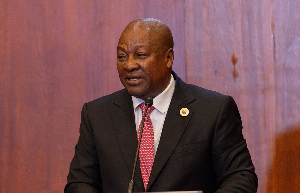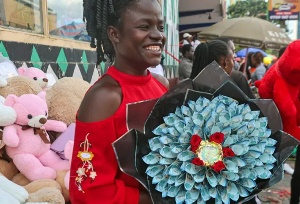Adolescent Mothers
On a mission to identify and interview 20 first time pregnant women for a gender strategy in a maternal and child health programme, it was revealed that thirteen of those identified were below the age of 18 years, with the youngest being twelve years old. This stems from a prevailing global child protection crisis. UNICEF estimates that over 12 million girls are married before they reach the age of 18 every year and one in every five girls is married, or in a union, before reaching age 18. This number doubles in the least developed countries, where 40 per cent of girls are married before age 18, and 12 per cent of girls before age 15.
The state of child marriage is further defined by the findings of the 2014 Ghana Demographic and Health Survey (GDHS), which indicates that, men in Ghana generally marry later than women, with an overall, 10 per cent of men age 25 to 49 married by age 20, compared with 45 per cent of women the same age. This situation has far reaching consequences on the high number of maternal and newborn deaths, which can all be traced to the unsatisfactory educational and economic outcomes of girls in Ghana.
Adolescent girls are neither psychologically or physically prepared for marriage and are thus forced to forego their childhood. The phenomenon drastically reduces the chances of these adolescent mothers ever continuing their already truncated education, or ability to engage in any meaningful economic endeavour to contribute to the family’s wellbeing. This makes the already vulnerable adolescent mothers even more susceptible to multiple pregnancies and birth from a very young age and within a short period.
Empowerment
Incorporating livelihood empowerment strategies into Sexual and Gender Based Violence and Maternal and Child Health programming has been proven to reduce the incidence of the core problem, which is the general economic vulnerability of the female gender, especially within the Ghanaian context. The 2017 Ghana Maternal Health Survey shows that, Children whose mothers have no education are more likely to die young than children whose mothers have more than secondary education. Also, under 5 mortality is higher among children in the poorest households than among children in the wealthiest households.
This is further buttressed by the GDHS (2014), which states that access to antenatal care, delivery assistance from a skilled provider, and postnatal care within the first two days of delivery increases as a woman’s empowerment increases. By addressing the underlying factors, being, poverty and illiteracy, girls and women are empowered to be assertive and seek more opportunities and avenues for improvement in their lives and that of their families.
Infant, child, and under-5 mortality rates decline with improvements in women’s empowerment, according to the survey.
A mother’s story
Through the Global Affairs Canada funded Technology for maternal and Child Health (T4MCH) project, Savana Signatures have supported 13 adolescent girls with livelihood empowerment and assistance to further their education. This has elevated the girls from vulnerability, with some of them opting for family planning measures to enable them concentrate in acquiring these essential skills to be able to make a living to support their babies and families.
A beneficiary of the project, an apprentice in a bakery in the North-East region, is hopeful of one day establishing the first bakery in her community, when she completes her apprenticeship. Having produced a professional teacher, with a second girl in the university and another in Senior High School, there is evidence of success to the strategy.
With the efforts being made to tackle maternal and new born deaths in Ghana, significant effort needs to be made to end early and forced child marriage in all its forms. Child marriage as a response to teenage pregnancy must be abhorred and parents and communities sensitised to desist from the practice and rather provide family and community safety nets to protect adolescent mothers and their babies.
Girls are vulnerable but adolescent mothers are even more vulnerable and therefore deserve a second chance, assisted care and love to help them surmount the hurdles they face due to the inadequacy of Ghana’s social protection systems.
Opinions of Monday, 10 February 2020
Columnist: Maaweh E. Tanga
Second chance, reducing the vulnerability of adolescent mothers
Entertainment














